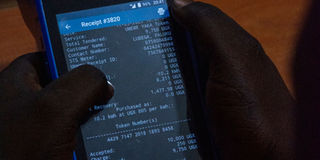Prime
Microfinance institutions digitise funding for refugees

Soko Uganda and UGAFODE Uganda have partnered to support women in providing a digital-based refugee women financing programme. PHOTO/ MICHAEL KAKUMIRIZI
What you need to know:
Under the arrangement, UGAFODE will also extend soft loans to refugee with no collateral.
Microfinance institutions are working with fintechs to entice people into banking, particularly the vast majority of refugees.
Soko Uganda and UGAFODE Uganda have partnered to support women in providing a digital-based refugee women financing programme that will be rolled out around Kampala and other all refugee camps.
“This partnership targets urban refugees in Nakivale, Kyangwali and other settlements. The e-commerce platform partnership will allow the women refugee traders to be paid and their money will be deposited into their accounts at UGAFODE,” said UGAFODE’s chief executive officer Mr Shafi Nambobi.
Under the arrangement, UGAFODE will also extend soft loans to refugee with no collateral only their businesses will guarantee as security, current Ugandan laws does not allow refugees to own land the commonest collateral used by entrepreneurs.
Soko is an initiative that was developed by Abercom (U) Technologies in partnership with the Ministry of Trade Industry and Cooperative with guidance from Uganda Manufacturers Association; Soko will also provide online advertising space for refugees.
Govt to allow land ownership
Speaking at the launch in Kampala, State Minister for Trade, Ms Harriet Ntabazi said that enhancing refugee land ownership is aimed at economic empowerment of the refugee to reduce pressure on government and humanitarian donors.
“We know that some refugees are not returning home. We need to economically empower them, e-commerce will go a long way in supporting refugee communities in trade; the government is putting infrastructure in place to help them, this will reduce the economic burden,” she said.
She added; “We are in talks with different multilateral agencies to find modalities in which refugees can acquire land rights, this will enable them access credit from financial institutions, this will be a step towards financial inclusion.”




